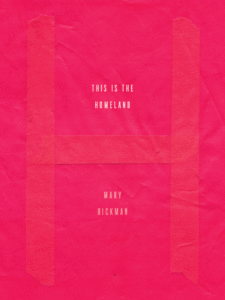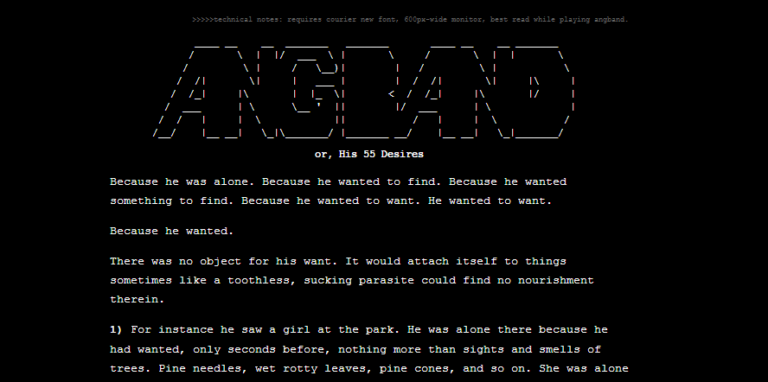Review: THIS IS THE HOMELAND by Mary Hickman
 This Is the Homeland
This Is the Homeland
Mary Hickman
Ahsahta Press, May 2015
80 pages
$18.00
Buy book
Mary Hickman’s first volume of poetry begins dazzlingly with “Joseph and Mary,” a poem carved out of Joyce’s Ulysses. Whether this was done by dramatic erasure or by mosaic-like re-arrangement of fragments is hard to say, but however it was accomplished, it enchants. Hickman’s distillation of Joyce’s novel carries a distinct flavor of Stephen Dedalus, a Stephen who has perhaps changed genders, but is still a shape-shifting intelligence in exile, looking for a body it can call home.
The body may be the homeland named and claimed in the title. Names of the body parts appear frequently—forearms, hips, glands, knees, feet, spine. The poems sometimes invoke yoga (“The Locust,” “Woodchopper”) or chiropractic (“Spinal Twist”) or even the operating table (“Twelve hours his chest / cracked & / died”), but somehow our best efforts to name and claim the body leave an elusive remainder. “This is the homeland,” the final sentence of the first section of “Territory” confidently asserts, but by the end of the second section the poem is asking, “What land is this?” In This Is the Homeland, the body is both the only place we will ever live and a mystifying, unknowable other.
In the book’s second half, the journey through our exile crosses a rather awful place called William. The poems “William,” “William Who Lives,” and “William My Man” occupy some fifteen pages and seem, like “Joseph and Mary,” decocted from some precursor text, though in this case not a readily identifiable one. Taking a wild leap, one might guess Meredith’s Ordeal of Richard Feverel, Lawrence’s Aaron’s Rod, or some other study of male entitlement and self-absorption: “William named my garden New York City. Then shoved me on my knees.”
William is not getting the last word, however. “Sky-burnt sea, wrapped in bandages of fog, we heal,” we read in “Totem,” and in “The Pool,” the first-person speaker is clearly not giving up the quest: “I’m here to find out / how to leave with the self.” The book completes itself in “Visionary Elegies” by announcing that it is a completed book, one moreover with a simple and compelling message:
I am filling your border with letters.
This is the new word—get up and live.
As robust an affirmation as any book is likely to earn in these belated days and earn it, Hickman’s haunted, beautiful, and exciting book certainly does.


